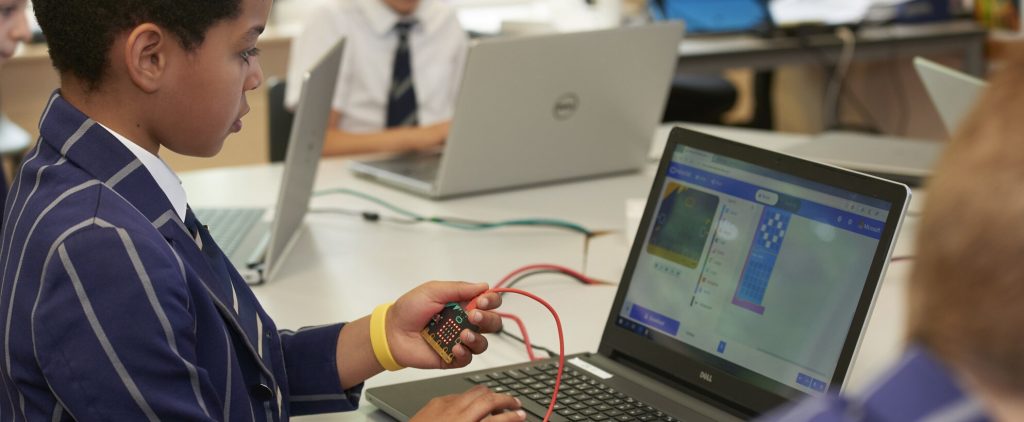Book now to arrange a private tour of the School
Aims
Computers are now part of everyday life. For most of us, technology is essential to our lives, at home and at work. ‘Computational thinking’ is a skill children must be taught if they are to be ready for the workplace and able to participate effectively in this digital world.
The national curriculum for computing has been developed to equip young people in England with the foundational skills, knowledge and understanding of computing they will need for the rest of their lives. Through the programme of study for computing children will learn how computers and computer systems work, design and build applications and websites, create different forms of media. Our aims in teaching Computing are that the children will:
- Learn how to apply computational thinking to problem solving
- Learn how to program in a number of environments
- Understand programming in ‘real world’ contexts such as control systems
- Be excited about new developments in technology and learn to understand the mechanisms behind these tools
- Apply the use of technology across the curriculum
Organisation
Computing is taught by the class teachers in Reception and Year 1 in the Pre Prep computer room. From Year 2 classes are delivered on a subject specialist basis in our well-equipped computer room
All computers in the School are networked and benefit from filtered access to the internet, as well as the School VLE. The School also has extensive resources across all departments, including interactive screens in teaching room. There are class sets of Apple iPads which teachers can book for use in their lessons, while pupils in Years 6-8 are provided with a School-owned iPad for their individual use in connection with School work across the curriculum. . In addition to this, we are exploring physical computing through the use of BBC:microbits and Crumble microcontrollers. Children take the learning from their computing lessons and develop this with subject specialists, for example using digital drawing tools in Art and building control systems to run student creations in DT.
Content
The children learn specific skills and then develop these through activities and projects. Our pupils develop skills in programming and debugging, project management, game creation, building apps, photography, video editing office skills, spreadsheets, database skills, using the internet safely and efficiently, emailing and graphics.
The School Virtual Learning Environment (VLE) has been designed to encourage the children to have access to exemplary pieces of work and links to selected websites, which support the curriculum. The children are also able to access the VLE and Office 365 from home.

